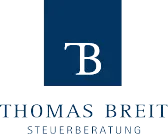Are you the owner of a partnership such as a civil law partnership (GbR) or a general partnership (oHG) and would like to transform your business into a limited liability company (GmbH)? Perhaps you have heard about accrual (Anwachsung) in this context, but you don’t know if this is actually a worthwhile option when transforming your business.
Working as an accountant and tax consultant in Hamburg I have advised dozens of business owners in the same position. The numerous advantages of a limited company (GmbH), such as limited liability, additional pension options and of course added prestige, sound tempting to almost every company owner.
But how do you transform your present business into a limited liability company while saving tax and with as little effort as possible?
In this blog post, I would like to show you one way to achieve this, through so-called accrual (Anwachsung).
I will explain it step by step, making it easily accessible for you:
- What is accrual?
- How does a corporate transformation with an accrual work? [case study]
- How can you avoid the “tax trap” when transforming your company?
- What are the three advantages for you?
- What are the special features of a GmbH & Co. KG (a limited partnership with a private limited liability company as its general partner)
This post was updated on 27 July 2021.
What is an accrual?
An accrual is when one or more partners leaves a company. and the partners’ shares are redistributed amongst the remaining partners. This redistribution is known as accrual.
In return for the accrual the partners who leave receive compensation for the capital they invested in the company (see also Section 738 German Civil Code (BGB)).
The partner does not have to be a natural person. An accrual can also be between two companies (also known as legal entities).
Please note: An accrual is only possible with partnerships (i.e. KGs, oHGs, GbRs und GmbH & Co. KGs).
Accrual in corporate transformation [explained with a case study]
Let’s assume that you have a civil law partnership (GbR) with a business partner. You would like to transform this GbR into a GmbH.
With an accrual the transformation would work as follows:
- You form a limited liability company (GmbH) alongside your GbR with your business partner.
- This GmbH becomes a partner in your GbR. As a result the GbR now has three partners: You, your partner and the GmbH.
- You and your business partner leave the GbR. Thus the GmbH is the sole remaining partner in the GbR.
- As you and your partner have left the GbR your shares are accrued to the GmbH. The GmbH now owns all of the GbR assets.
- The GmbH now takes over the GbR and it ceases to exist.
Thus you have achieved your goal: Your company is now a GmbH and the corporate transformation is completed.
Beware: Avoid the “tax trap” when transforming your company
If you do not follow these steps to the letter you could unintentionally initiate a dissolution of your GbR. In this case your GbR is not transformed into a GmbH, it is simply dissolved without any subsequent company.
This will mean a substantial tax bill for you. If you simply dissolve your company, all of its assets automatically become your private property. If the current market value of these assets is higher than the book value, a fictitious “sales profit” arises which you must pay tax on.
When it comes to an accrual you must always avoid dissolving your company. Therefore, my advice to you is: When you are using accrual for corporate transformation only do it with the aid of an experienced tax consultant.
Universal succession and tax neutrality: These are the three main advantages
1. Universal succession: All rights and obligations of the old company are seamlessly transferred to the new company
Because accrual “absorbs” the old company into the new one, all of the old company’s contractscontinue. This is usually a great advantage for you.
Because if the contracts did not continue, they would all have to be redrafted by your lawyer and possibly even renegotiated with your business partners.
Through this seamless transformation you save yourself a lot of time, energy and above all money.
2. No tax implications when the accrual is carried out “properly”
When transforming your company, you must follow the above steps meticulously. If you do, then Section 20 German Transformation Tax Act (UmwStG) applies to the accrual and your corporate transformation can usually be carried out in a tax neutral way.
If you do not follow these steps, the tax office will treat it as a dissolution of the company according to Section 16 German Income Tax Act (EStG) and you will have to pay tax on the accrual in the same way as if you had sold your business.
3. Easier and less expensive than an amalgamation
Although you must follow the steps described above for the accrual, this process is (almost) always cheaper and faster than an amalgamation.
This is because in an amalgamation, you must always apply for tax exemption. Unfortunately, in practice, people often forget about this application and the amalgamation is taxed like a normal sale.
In addition to this, it also takes longer and the consultancy costs amount to several thousand euros due to higher legal fees (notarization, preparation of a merger report, preparation of a merger audit).
A special case for accrual: The GmbH & Co. KG
The GmbH & Co. KG (limited partnership with a private limited liability company as its general partner) is a special case due to its particular corporate structure. Unlike with partnerships, such as a GbR or an oHG for example, other legal entities apart from natural persons can be involved in the company.
With a GmbH & Co. KG, a GmbH is always involved as a fully liable general partner. and you and possible business partners are limited partners.
If you and your partners now simply withdraw from the GmbH & Co. KG, this process is called the simple accrual model. Your shares go to the GmbH and from the GmbH & Co. KG only the GmbH is left.
Unlike a with a oHG or KG, however, this process is not tax neutral.
The reason: When you leave, your hidden reserves are disclosed and must be taxed at your income tax rate. Depending on the extent of your hidden reserves, you can expect to pay thousands of euros in tax.
Your alternative to the simple accrual model is the extended accrual model. Thanks to a relatively simple “trick”, the extended accrual is tax-free. To implement this trick you need to proceed as follows:
- You carry out a capital increase for the GmbH general partner of the GmbH & Co. KG and put the shares that you own in the GmbH & Co. KG into the GmbH.
- For the capital paid in by you, you receive shares in the GmbH.
The result: The accrual is now tax neutral as per Section 20 UmwStG.
Conclusion: Accrual is a good choice when converting your company
If you want to convert your GbR, oHG, KG or GmbH & Co. KG into a GmbH (limited liability company) without extensive paperwork and a substantial tax bill, accrual is generally the best way to go.
Furthermore, thanks to universal succession, all contracts continue to run normally and do not have to be adapted, redrafted or even renegotiated. In addition, accrual can be carried out in a tax-neutral manner.
This means that you do not have to pay any tax on the conversion.
Despite these advantages, you should always have an experienced tax consultant examine your individual situation. It may well be that a different type of conversion is more suitable for your company.
One can never say that accrual is always the best solution.
Do you have any more questions about accrual?
If you have further questions about accrual, please feel free to visit me at my tax consultancy office.
Having gathered many years experience as a tax consultant in Hamburg, I can show you what you need to do for this type of corporate transformation and exactly how you can reap the benefits.
For a personal consultation you can reach me anytime via phone (+49 40 443311), e-mail (anfrage@steuerberatung-breit.de) or my contact form (click here!).
Kind regards,
Thomas Breit
Photo: © NDABCREATIVITY – stock.adobe.com



